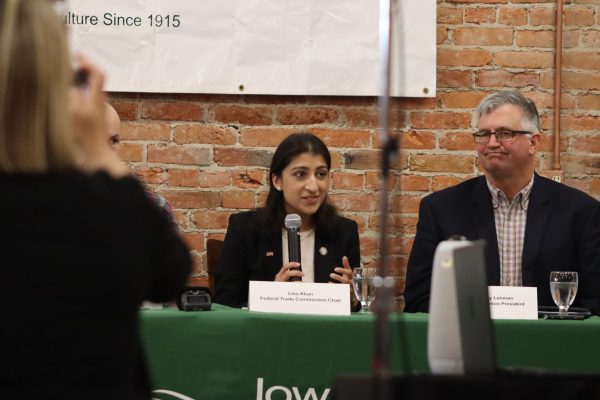Candidates spend more on Iowa ads than before
August 29, 2007
WASHINGTON – The good citizens of Iowa are getting an eyeful and an earful of political ads these days, far more than before, even for one of the epicenters of presidential politics.
In the past week, four Democratic White House contenders and two Republicans have spread their message on radio or television in the state, more than four months before Iowa is scheduled to hold its first-in-the-nation caucuses and weeks before the traditional post-Labor Day launch of the fall campaign.
So far, the presidential candidates have spent at least $5 million on ads in Iowa, about $25 for each expected caucus goer.
Democratic candidate Sen. Hillary Rodham Clinton of New York, in her first ad of the campaign this month, cast herself as a caring guardian of Americans who are invisible to Washington. Illinois Sen. Barack Obama presents himself as an agent of hope and unity. New Mexico Gov. Bill Richardson promotes his record on jobs. And Delaware Sen. Joe Biden makes his case for a political solution to the war in Iraq.
Among Republicans, former Massachusetts Gov. Mitt Romney is condemning New York’s immigration policies, a dig at rival Rudy Giuliani, the city’s former mayor. Giuliani is running a radio ad promoting his support for a fence along the U.S.-Mexico border.
Romney and Richardson have been the most aggressive advertisers, each already approaching or surpassing the amounts spent by Democrats John Kerry and Howard Dean during the entire Iowa caucus campaign of 2003-04.
That more money is being spent is hardly surprising. Candidates are raising enough cash to shatter previous records.
“There are several things that are different: the money race, the amount of attention both nationally and in the early states that this race is getting and the number of candidates who are largely blank slates who are aggressively trying to fill in those blanks before their opponents do,” said Stephanie Cutter, who was Kerry’s campaign communication director in 2004.
Political advertising in Iowa, and to a lesser degree in the first-primary state of New Hampshire, has been growing even though more than a dozen states want to hold nominating contests on Feb. 5 and other states are jockeying for January slots.
“Iowa is going to rise to a level that you’ve probably never seen before,” said Evan Tracey, chief operating officer for TNS Media Intelligence/Campaign Media Analysis Group. “The wild card is does anybody venture into these Super Tuesday states – how soon and how far out are they going to play in these Feb. 5 states.”
















